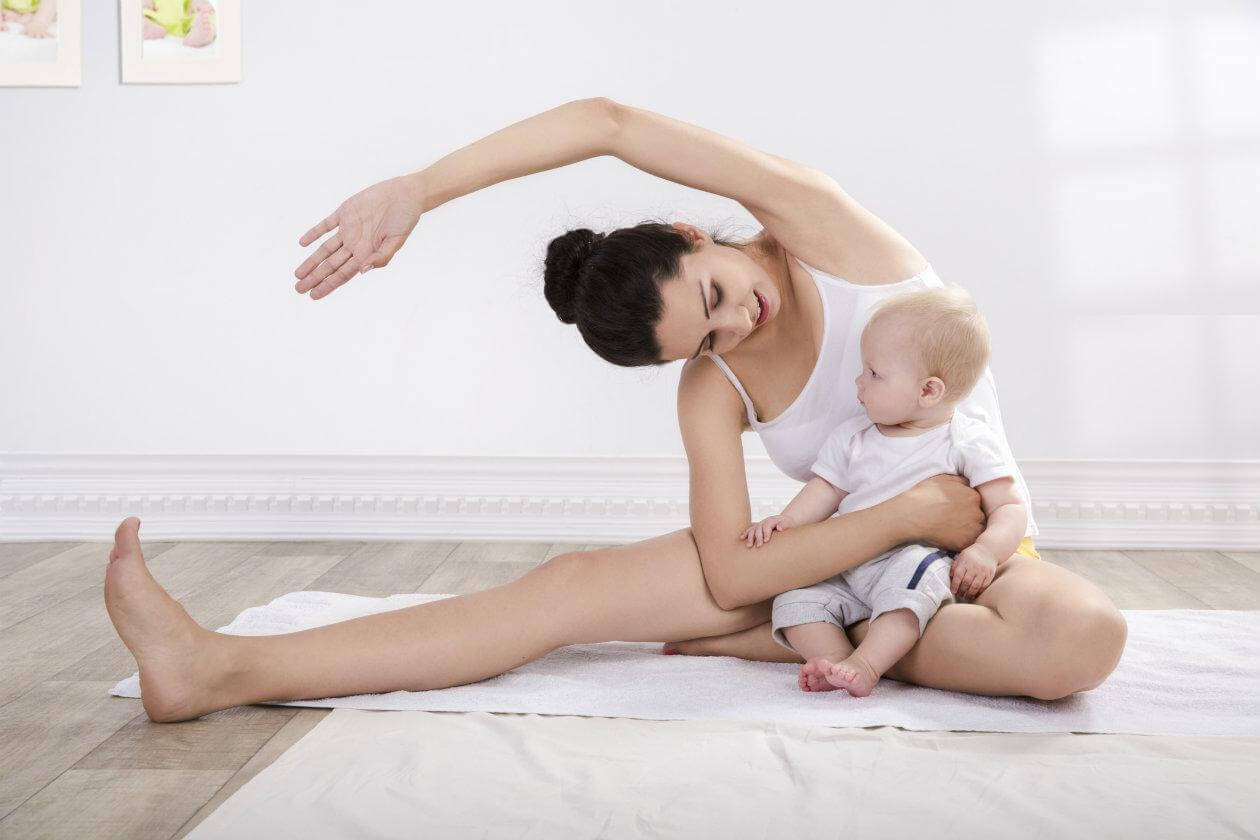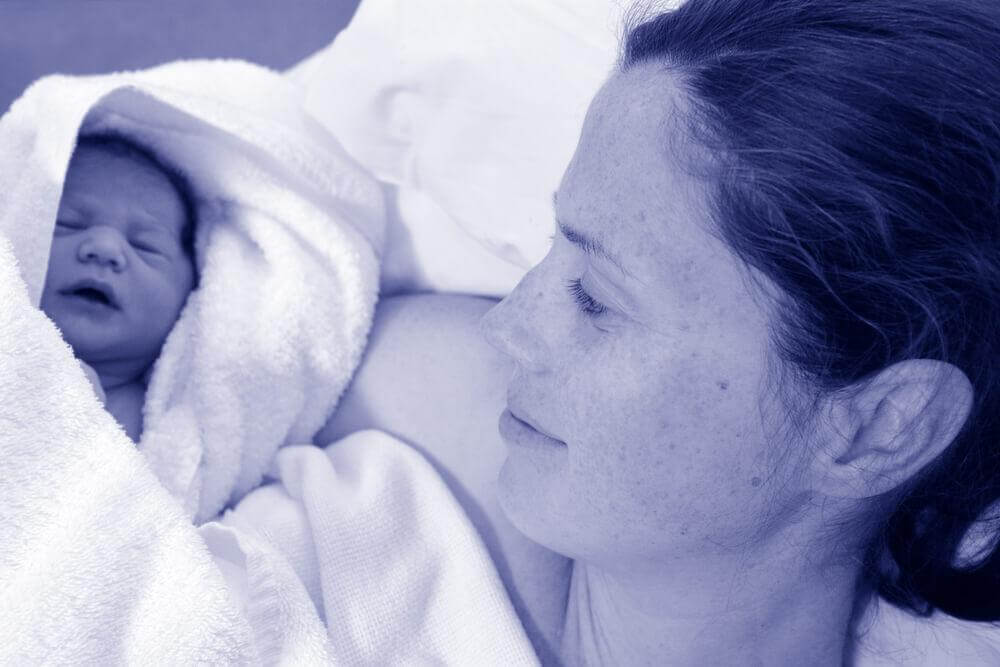Women Need a Year to Recover After Childbirth

Women use the postpartum period to recover after childbirth. Women need at least one year to recover from childbirth.
The famous “quarantine” is a Latin American postpartum custom that states women need 40 days to recover after giving birth. It’s often confused with the postpartum period, the time women need to recover after childbirth.
The postpartum period extends beyond 6 weeks of “quarantine”. It’s a process of physical and emotional recovery after the 9 months of pregnancy and childbirth. According to several studies and theories, it can last one, two, or even three years.
A year to recover after childbirth
A 2012 study conducted by Dr. Julie Wray from the University of Salford in Manchester found that women need at least one year to recover after childbirth. The hormonal and physical changes a woman’s body experiences during pregnancy don’t stop after childbirth.
The postpartum period also involves physical and emotional changes to adapt to the new reality of being a mother. The researcher interviewed women from several countries who had given birth. Some had given birth two to three weeks ago, others three months ago, and others six to seven months ago.

Wray found that most mothers need at least 12 months of postnatal recovery, which involves both physical and emotional aspects. “Women feel it takes more than six weeks to recover and should receive support beyond just six to eight weeks after childbirth,” said the researcher.
The postpartum period
The research mentioned refers to the estimated time new mothers considered necessary to recover after childbirth. However. according to the Argentinian psychologist Laura Gutman, author of the famous book “Maternity: Coming Face to Face with Your Own Shadow”, the postpartum period lasts up until the child is 2 or 3 years old.
The mom and her baby are one emotional unit. Childbirth “breaks” the physical connection the mother and baby had during the 9 months of pregnancy. Although they’re no longer an unit, they remain emotionally attached and detaching takes time.
According to the family therapist, the postpartum period are situations that affect the woman’s stability. The birth was a strong “emotional disintegration” when mother and baby became two.
Your own shadow
The postpartum period makes you deal with what’s beyond your control, what’s within yourself, and with your own shadows and conflicts. However, in order to become totally renovated, you need to be aware of the process you’re living and recover after childbirth.

While you’re in the middle of that mystical, energetic, and emotional process, you have a newborn in your arms you need to care for. The baby cries to express the woman’s pain and fears that were triggered after delivery.
We recommend that you read: 4 Steps to Get Your Baby to Sleep
Perhaps our grandmothers had it easier because they only cared for their children and homes. But nowadays, women are active, organized, entrepreneurial, and independent.
In the middle of this emotional process, mothers have withstand the “real” world of work, money, and everyday worries to then come home and care for their babies. Neither the environment or the mothers are prepared to make that transition safely without becoming depressed.
When there’s no time to get reacquainted with oneself
Faced with this complex emotional situation Gutman describes, it’s crystal clear that it’s impossible for expecting women to regain the normality they had prior to pregnancy, including their sexuality and working lives, within six weeks.
The truth is that not all mothers are fortunate enough to be able to be entirely devote to caring for their babies while recovering physically and emotionally at the same time. Millions of single women have other children, and have to work. This means, there’s no time for them to get reacquainted with themselves.

Therefore, the reality that millions of women and working mothers face, is that there’s no maternity leave they can use to recover after giving birth in their countries. Women have to go to work, find someone to care for their babies, and have no time to deal with the emotional repercussions of childbirth.
Read this article too: How to Bathe a Newborn Baby
The reality of working mothers
Only 34 countries comply with the International Labor Organization’s (ILO) recommendation of giving women at least 14 weeks of paid maternity leave.
Most maternity leaves don’t adapt to the mother and baby’s needs, although there are a few exceptions: Croatia gives 410 days of postnatal leave. Countries like Montenegro, Bosnia, and Albania also offer 365 days. The United Kingdom and Norway give 315 days. Sweden offers 240 days.
At the opposite end of the scale are most African and Asian countries, which don’t give more than 8 weeks. In addition to an emotional attachment to the baby, a woman’s recovery after childbirth involves physical and mental aspects. There’s still a long way to discoverhe needs of newly delivered mothers and their babies.
All cited sources were thoroughly reviewed by our team to ensure their quality, reliability, currency, and validity. The bibliography of this article was considered reliable and of academic or scientific accuracy.
- Castaigne, V., Picone, O., & Frydman, R. (2012). Parto prematuro. EMC – Ginecología-Obstetricia. https://doi.org/10.1016/s1283-081x(06)45070-0
- Del Río, R., León, P., Minassian, M., Borgoño, R., & Bustamante, F. (2008). Embarazo adolescente. Revista Pediatría Electrónica, Hospital Clinico de Niñoz Roberto Del Rio. https://doi.org/10.1016/j.ancene.2014.05.001
- Aguilar, O. C., Romero, A. L. F., & García, V. E. M. (2013). Comparación de resultados obstétricos y perinatales del parto en postura vertical versus supina. Ginecologia y Obstetricia de Mexico.
This text is provided for informational purposes only and does not replace consultation with a professional. If in doubt, consult your specialist.








